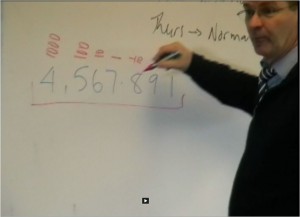The key stage of development in algebra is the earliest possible stage – at our secondary school, we need to get Year 9 right and the following years just follow on.
It is essential that time is taken to cement the foundations as cracks are discovered. If we simply keep building up, the building will start to wobble.
Never underestimate the importance of maintenance of number knowledge e.g. multiplication tables, integer skills.
I know that students have really ‘got it’ when they can unpack using BEDMAS in reverse.
It is clear that a student’s numeracy level is correlated with his or her ability to manipulate expressions. It is imperative that a student has sound number understanding, in terms of ordering numbers, whole number operations, order of operations, and integers.
The prerequisite knowledge required for success in algebra revolves around confidence in basic number operations, especially integer operations and BEDMAS (not BODMAS). Most students arrive in my Year 9 classroom without this knowledge.
How do we know what is challenging prerequisite knowledge our students have mastered?
We assess our students with a Prerequisite Knowledge Diagnostic Test.
So what have we done to help our students understand the prerequisite knowledge needed for learning algebra?
We have changed the way we approach our teaching by:
- Showing students how algebra is everywhere in our lives
- Establishing what each student understands through assessment
- Promoting algebraic thinking with rich and meaningful contexts
- Demonstrating the benefits of rigour and correct use of vocabulary
- Building a “toolbox” of knowledge and skills that students can use appropriately and efficiently


